I've read through many other topics here (1, 2, 3...) but none really solved my problem.
Here are my 3 models.
User
has_many :memberships
has_many :accounts, :through => :memberships
accepts_nested_attributes_for :memberships
end
Account
has_many :memberships
has_many :users, :through => :memberships
accepts_nested_attributes_for :memberships
end
Membership
attr_accessible :account_id, :url, :user_id
belongs_to :account
belongs_to :user
end
As you can see, my join model Membership has an additional attribute: :url.
In my Accounts table, I store names of online services, such as GitHub, Stack Overflow, Twitter, Facebook, LinkedIn.. I have 9 in total. It's a fixed amount of accounts that I don't tend to update very often.
In my User form, I'd like to create this:

The value entered in any of these field should be submitted in the Memberships table only, using 3 values:
url(the value entered in the text field)user_id(the id of the current user form)account_id(the id of the related account, e.g. LinkedIn is '5')
I have tried 3 options. They all work but only partially.
Option #1
<% for account in @accounts %>
<%= f.fields_for :memberships do |m| %>
<div class="field">
<%= m.label account.name %><br>
<%= m.text_field :url %>
</div>
<% end %>
<% end %>
I want to have 9 text field, one for each account. So I loop through my accounts, and create a url field related to my memberships model.
It shows my fields correctly on the first time, but the next time it'll display 81 fields:

Option #2
<% @accounts.each do |account| %>
<p>
<%= label_tag(account.name) %><br>
<%= text_field_tag("user[memberships_attributes][][url]") %>
<%= hidden_field_tag("user[memberships_attributes][][account_id]", account.id) %>
<%= hidden_field_tag("user[memberships_attributes][][user_id]", @user.id) %>
</p>
<% end %>
I'm trying to manually enter the 3 values in each column of my Memberships tables.
It works but :
- displaying both account and user id's doesn't seem very secure (no?)
- it will reset the fields everytime I edit my user
- it will duplicate the values on each submit
Option #3 (best one yet)
<%= f.fields_for :memberships do |m| %>
<div class="field">
<%= m.label m.object.account.name %><br>
<%= m.text_field :url %>
</div>
<% end %>
I'm creating a nested form in my User form, for my Membership model.
It works almost perfectly:
- exactly 9 fields, one for each account
- no duplicates
But, it only works if my Memberships table is already populated! (Using Option #2 for example).
So I tried building some instances using the UsersController:
if (@user.memberships.empty?)
@user.memberships.build
end
But I still get this error for my m.label m.object.account.name line.
undefined method `name' for nil:NilClass
Anyway, I'm probably missing something here about has_many through models. I've managed to create has_and_belongs_to_many associations but here, I want to work on that join model (Membership), through the first model (User), using information about the third model (Account).
I'd appreciate your help. Thank you.